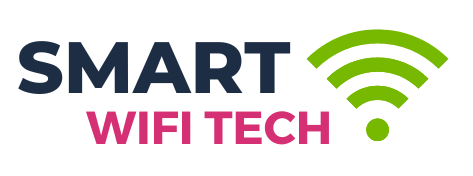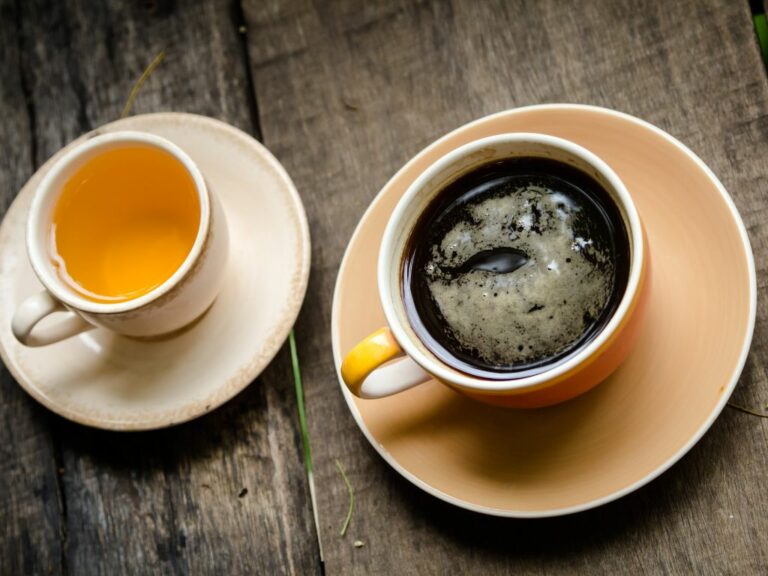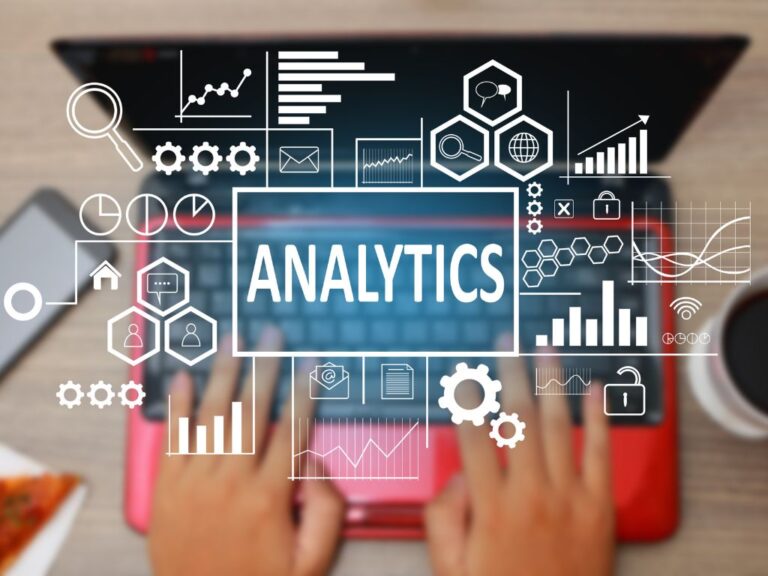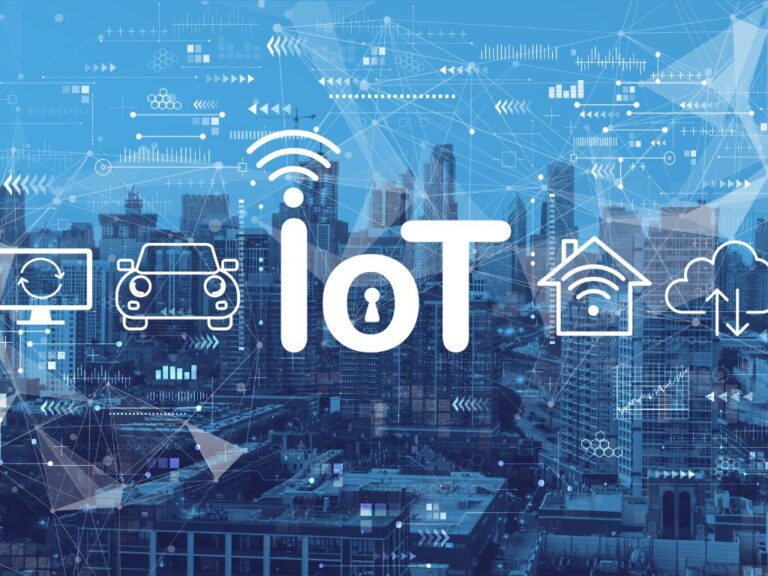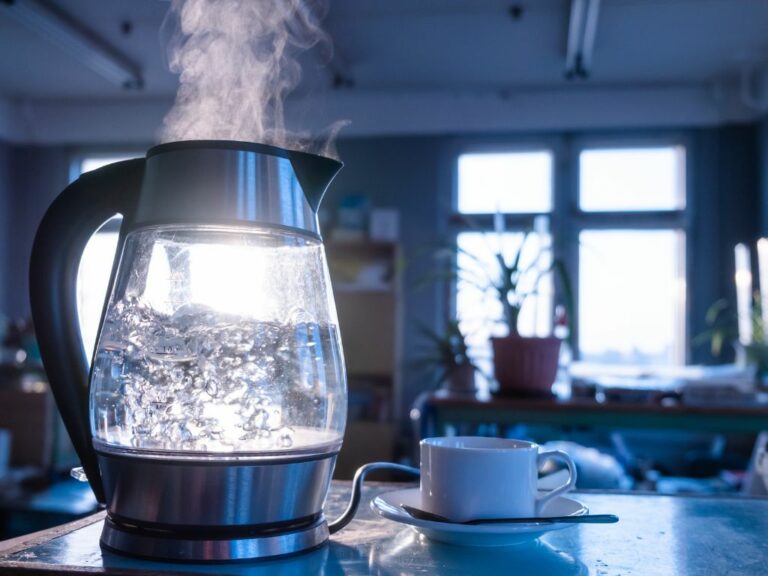Smart Kettles and Health Tracking: Monitoring Hydration Levels with Precision
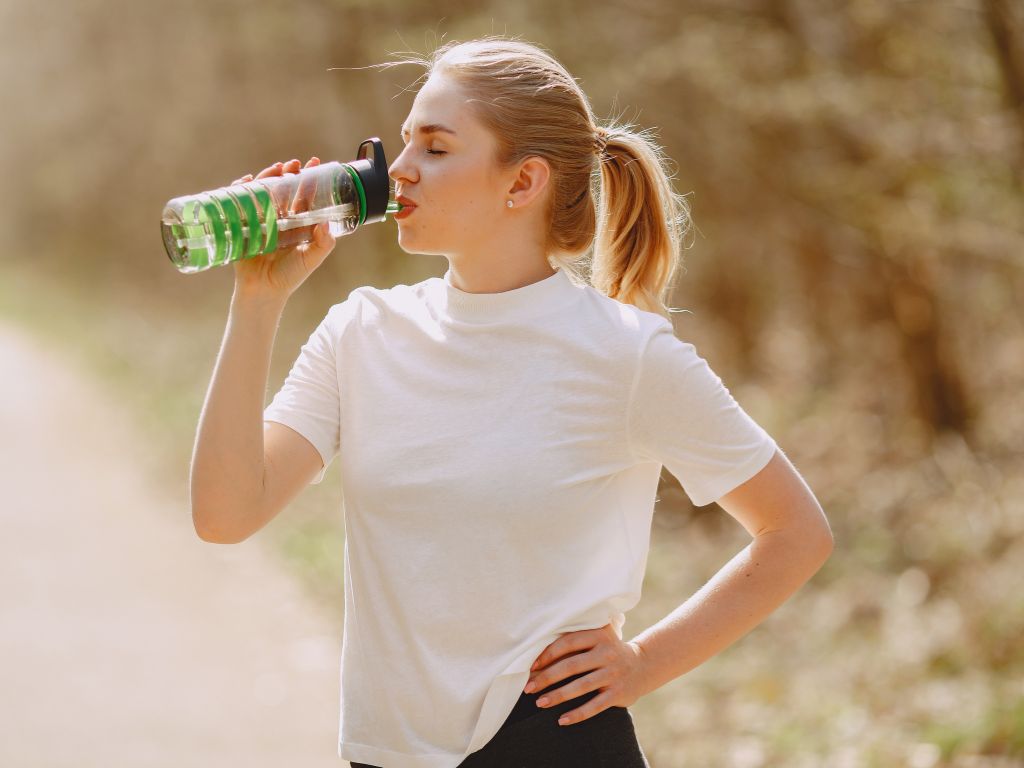
In the realm of modern living, where technology is seamlessly integrated into every aspect of our daily routines, the kitchen has not escaped innovation. Among the myriad of smart devices transforming our homes, smart kettles stand out as a prime example of how technology can enhance even the most basic of tasks.
But these sleek and sophisticated appliances offer more than convenience; they herald a new era of health-conscious living. By seamlessly combining the art of brewing tea or coffee with the science of health tracking, smart kettles have transcended their traditional role to become guardians of our hydration levels.
In this article, we embark on a journey into the fascinating intersection of smart technology and health monitoring, focusing in particular on the remarkable ability of smart kettles to monitor and maintain optimal hydration levels with unparalleled precision. We look at the underlying technologies, explore the benefits to our wellbeing and consider the future implications of this innovative marriage of convenience and health awareness.
Introduction to Smart Kettles
Smart kettles are a fusion of traditional kitchen appliances and cutting-edge technology, offering a range of features that go beyond the simple task of boiling water. Equipped with sensors, connectivity and advanced controls, these intelligent appliances transform the mundane act of making tea or coffee into a seamless and customisable experience.
The integration of technology takes smart kettles to new heights of functionality. Users can now control their kettles remotely via smartphone apps, set precise temperature settings for different types of beverages and even receive notifications when the water reaches the desired temperature. Some models also offer voice control, allowing users to operate their kettle using simple voice commands.
The rise of the smart kettle is part of a wider trend towards the adoption of smart appliances in the kitchen. As consumers become more accustomed to the convenience and connectivity offered by smart devices in other areas of their lives, they are looking for similar benefits in their culinary endeavours.
From smart fridges that can track stock and suggest recipes to smart ovens that can be controlled remotely, the kitchen is undergoing a digital transformation. This trend reflects not only a desire for convenience and efficiency, but also a growing interest in using technology to improve everyday tasks and overall quality of life.
The Importance of Hydration
Hydration is fundamental to human health and well-being, playing a vital role in many physiological processes that are essential for the proper functioning of the body.
Body temperature regulation – Water helps regulate body temperature through sweating and evaporation. Adequate hydration is essential to prevent overheating, especially during physical activity or in hot environments.
Transport of nutrients – Water serves as a medium for transporting nutrients and oxygen to cells throughout the body. It facilitates the absorption and distribution of essential nutrients, thereby supporting cellular function and metabolism.
Detoxification – Hydration supports the body’s natural detoxification processes by flushing out waste products and toxins through urine and sweat. Optimal hydration helps maintain kidney function and prevents the build-up of harmful substances in the body.
Joint lubrication – Water acts as a lubricant for joints, cushioning and reducing friction during movement. Proper hydration is essential to maintain joint flexibility and prevent discomfort or pain associated with dehydration.
Cognitive function – The brain relies heavily on adequate hydration to function optimally. Even mild dehydration can impair cognitive performance, affecting concentration, memory and mood. Maintaining hydration levels is essential for mental clarity and overall cognitive function.
Digestive health – Water is essential for proper digestion and absorption of nutrients. It helps break down food, aids the movement of nutrients through the digestive tract and prevents constipation by softening stools. Adequate hydration supports a healthy digestive system.
Skin health – Hydration plays a key role in maintaining the elasticity, texture and appearance of the skin. Dehydration can lead to dryness, flakiness and premature ageing of the skin. Drinking enough water helps keep skin hydrated, smooth and glowing.
Physical performance – Optimal hydration is crucial for athletes and people who are physically active. Dehydration can impair performance, leading to fatigue, muscle cramps and reduced endurance. Proper hydration supports optimal physical performance and recovery.
Maintaining proper hydration levels can be challenging for individuals due to various factors that influence fluid intake and loss.
Forgetfulness – One of the biggest challenges is simply forgetting to drink enough water throughout the day. Busy schedules, distractions and lack of awareness can all lead to people neglecting their hydration needs.
Lack of awareness – Many people are unaware of how much water they should drink each day or may not recognise the signs of dehydration. Without a clear understanding of hydration needs and the body’s cues, individuals may fail to prioritise drinking water.
Preference for other drinks – Some people prefer to drink sugary drinks, caffeinated drinks or alcohol over plain water. While these beverages can contribute to overall fluid intake, they may also have diuretic effects or contain added calories and sugar, which can negatively impact hydration levels.
Limited access to clean water – In certain regions or situations, access to clean drinking water may be limited, making it difficult for individuals to stay adequately hydrated. This can be particularly problematic during travel, outdoor activities or emergencies.
Environmental factors – Environmental conditions such as hot weather, high altitude or dry climates can increase fluid loss through sweating and breathing, leading to dehydration if not compensated by increased water intake.
Workplace culture – In some work environments, such as offices or factories, employees may not have easy access to water or may feel discouraged from taking frequent hydration breaks due to productivity pressures or workplace norms.
Medical conditions – Certain medical conditions or medications can affect fluid balance and hydration status. For example, people with diabetes, kidney disease or gastrointestinal problems may have specific hydration needs or restrictions.
Physical activity – Exercise or physical labour increases fluid loss through sweating, so it is important to replenish lost fluids to maintain hydration levels. However, some people may underestimate their fluid needs during exercise, or may not have convenient access to water during activity.
Age-related factors – Infants, children, older adults and those with compromised health may be more susceptible to dehydration due to factors such as decreased thirst sensation, reduced kidney function or mobility limitations.
Features of Smart Kettles for Health Tracking
Smart kettles are not just about boiling water, they also have advanced health tracking capabilities to help users monitor and optimise their hydration levels.
Hydration sensors – Smart kettles are equipped with sensors that measure the volume of water in the kettle. These sensors can detect the initial water level and track changes as water is heated and dispensed. By accurately monitoring water usage, the kettle can provide insights into the user’s hydration habits over time.
Temperature sensors – In addition to measuring water volume, smart kettles often include temperature sensors to monitor the temperature of the water as it heats up. This allows users to set precise temperature settings for different types of beverages, such as green tea, black tea or coffee, to ensure optimal flavour and quality.
Real-time monitoring – Smart Kettles provide real-time feedback on hydration status, displaying information such as current water level and temperature on a digital display or companion smartphone app. Users can easily track their progress throughout the day and make informed decisions about when to refill the kettle or rehydrate.
Customisable settings – Users can customise settings and preferences based on their individual hydration needs and preferences. This can include setting reminders to drink water at regular intervals, adjusting temperature settings for specific beverages or programming personalised hydration goals.
Integration with health apps – Many smart kettles are compatible with health and fitness apps, allowing users to sync hydration data with other health metrics such as activity levels, sleep patterns and food intake. This integration provides a comprehensive view of overall wellness and enables users to identify correlations between hydration and other health factors.
Hydration tracking algorithms – Smart kettles can use sophisticated algorithms to analyse hydration patterns and provide personalised recommendations. These algorithms take into account factors such as age, weight, activity level and environmental conditions to determine optimal hydration goals and suggest adjustments as needed.
Alerts and notifications – Smart kettles can send alerts and notifications to remind users to drink water or refill the kettle when the water level is low. These reminders help promote consistent hydration habits and prevent dehydration, especially during busy or hectic times.
Data logging and history – Smart kettles often have built-in memory to store historical data on hydration levels and usage patterns. This allows users to track their hydration progress over time, identify trends and make informed decisions about their hydration habits.
Smart kettles use a range of sensors and advanced technologies to accurately measure hydration levels, ensuring accurate monitoring and effective health tracking.
Water level sensors – Smart kettles are equipped with water level sensors that accurately detect the initial water level and track changes as water is heated and dispensed. These sensors use various techniques such as float switches, capacitance sensors or ultrasonic sensors to measure water level with high accuracy.
Temperature sensors – Temperature sensors are built into smart kettles to monitor the temperature of the water as it heats up. These sensors ensure that the water reaches the desired temperature for brewing different types of beverages, while providing real-time feedback on the heating process.
Flow sensors – Some smart kettles have flow sensors that measure the rate at which water is dispensed from the kettle. These sensors help to track water usage and consumption over time, allowing users to monitor their hydration habits and make informed decisions about when to refill the kettle.
Weight sensors – Some smart kettles use weight sensors to measure the weight of the kettle when filled with water. By subtracting the empty weight of the kettle, these sensors can accurately determine the volume of water inside, providing accurate hydration tracking capabilities.
Connectivity technologies – Smart kettles often incorporate connectivity technologies such as Wi-Fi or Bluetooth, allowing them to communicate with companion smartphone apps or other devices. This allows users to access real-time hydration data, receive notifications, and sync information with health tracking platforms for comprehensive monitoring.
Advanced algorithms – Smart Kettles can use advanced algorithms to analyse hydration patterns and calculate personalised recommendations based on individual factors such as age, weight, activity level and environmental conditions. These algorithms improve the accuracy of hydration tracking and provide tailored insights and feedback to users.
Data processing and analysis – Smart Kettles process and analyse data collected from various sensors to generate actionable insights and trends related to hydration levels. Using data analysis techniques, smart kettles can identify patterns, anomalies and correlations in hydration data, enabling users to make informed decisions about their hydration habits.
Smart kettles collect, process and present data to users through a combination of sensors, connectivity technologies and user interfaces.
Data collection
– Sensors built into the Smart Kettle collect various types of data, including water level, temperature, flow rate and sometimes even environmental conditions such as humidity.
– These sensors continuously monitor changes in the kettle’s environment and water parameters, such as heating status and amount of water dispensed.
Data processing
– The collected data is processed by the kettle’s on-board microcontroller or processor, which interprets the sensor readings and performs calculations as required.
– Advanced algorithms can be used to analyse the data, identify patterns and derive meaningful insights related to hydration levels and usage patterns.
– The processed data can also be used to generate personalised recommendations or alerts based on user-defined preferences and hydration goals.
Connectivity and transmission
– Smart Kettles are equipped with connectivity technologies such as Wi-Fi, Bluetooth or Zigbee, which enable communication with external devices such as smartphones, tablets or smart home hubs.
– Processed data is transmitted wirelessly to a companion smartphone app or other compatible devices, either in real time or at regular intervals.
User interface
– Users interact with the smart kettle and access hydration data through a user-friendly interface, typically a smartphone app or the kettle’s built-in display.
– The app or display presents relevant information such as current water level, temperature, usage history and hydration trends in an easy-to-understand format.
– Users can view their hydration progress, set personalised goals, customise settings and receive notifications or reminders to drink water or refill the kettle as needed.
Data presentation and visualisation
– Hydration data is presented to users in visually appealing and informative ways, such as charts, graphs and summary statistics.
– Historical data can be displayed to show trends over time, allowing users to track their hydration habits and identify areas for improvement.
– Some smart kettles also offer insights and recommendations based on the analysed data, helping users make informed decisions about their hydration needs.
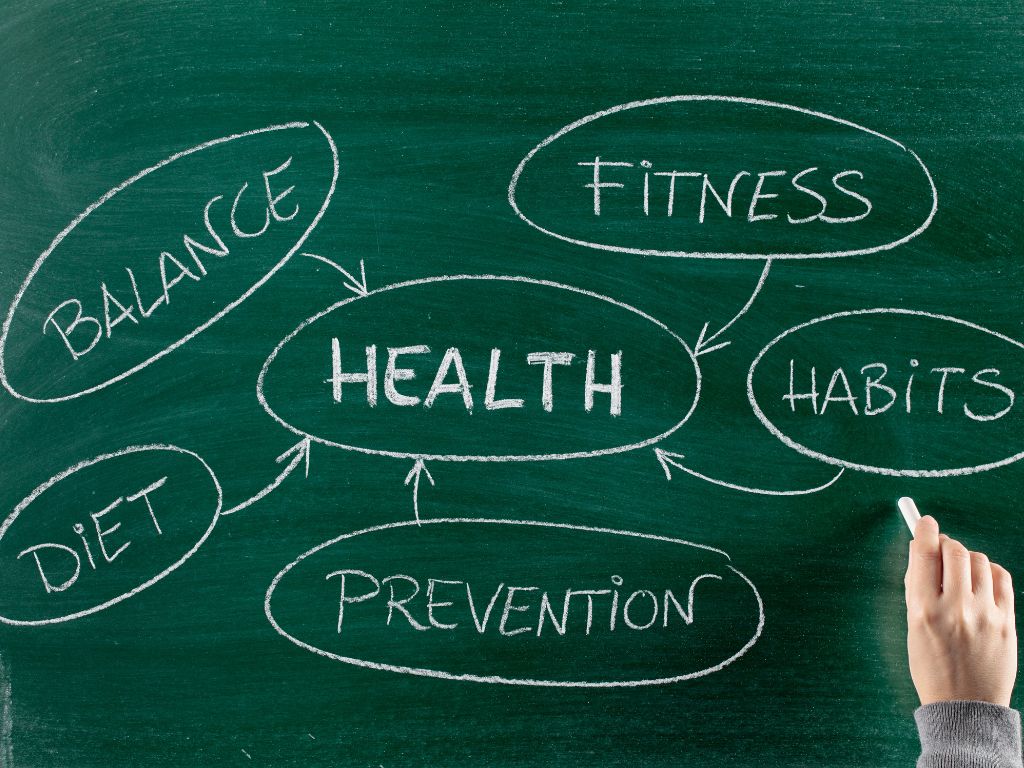
Precision Hydration Monitoring
Smart kettles offer a more accurate way to monitor hydration levels than traditional methods through a number of key benefits.
Accurate measurement – Smart kettles are equipped with sensors that accurately measure the volume of water in the kettle. Unlike traditional methods such as estimating water intake from cups or glasses, smart kettles provide accurate measurements, ensuring users have an accurate understanding of their hydration levels.
Real-time feedback – Smart kettles provide real-time feedback on hydration status, displaying information such as current water level and temperature on a digital display or companion smartphone app. This immediate feedback allows users to monitor their hydration throughout the day and make adjustments as needed to ensure optimal hydration levels are maintained.
Personalised recommendations – Smart Kettles can analyse hydration data and provide personalised recommendations based on individual factors such as age, weight, activity level and environmental conditions. By taking these factors into account, smart kettles offer tailored insights and suggestions to optimise hydration, something that is not possible with traditional methods.
Integration with health apps – Many smart kettles are compatible with health and fitness apps, allowing users to sync hydration data with other health metrics such as activity levels, sleep patterns and food intake. This integration provides a comprehensive view of overall wellness and enables users to identify correlations between hydration and other health factors, providing a more holistic approach to hydration monitoring than traditional methods.
Consistency and automation – Smart Kettles provide consistent and automated monitoring of hydration levels, eliminating the variability and potential for human error associated with manual tracking. Users can rely on smart kettles to continuously monitor their hydration throughout the day, ensuring consistency in tracking and promoting adherence to hydration goals.
Ease of use – Smart kettles offer a user-friendly interface that makes it easy for users to track and monitor their hydration levels. With features such as customisable settings, alerts and reminders, smart kettles simplify the process of staying hydrated compared to traditional methods that may require more effort and care.
Real-time data feedback from smart kettles offers several benefits for adjusting hydration habits.
Instant awareness – Real-time feedback instantly informs users of their current hydration status, including the level of water in the kettle and the temperature of the water. This immediate awareness helps users stay hydrated throughout the day and encourages proactive hydration habits.
Timely intervention – With real-time data feedback, users can identify and address hydration imbalances in a timely manner. If the water level in the kettle is low or the water temperature is not optimal, users can take immediate action to refill the kettle, adjust the temperature settings or drink water to maintain hydration levels.
Customised settings – Real-time data feedback allows users to make customised adjustments to their hydration habits based on their individual needs and preferences. For example, users can set personalised hydration goals, receive alerts and reminders to drink water at regular intervals, or adjust temperature settings for different types of beverages.
Improved hydration compliance – By providing real-time feedback on hydration status, smart kettles help improve hydration compliance. Users are more likely to stick to their hydration goals when they have access to immediate feedback and reminders, leading to better hydration habits and overall health outcomes.
Optimised performance – Real-time data feedback allows users to optimise their hydration for peak performance. Whether exercising, working or studying, users can adjust their hydration levels in real time to support cognitive function, physical endurance and overall productivity.
Long-term behaviour change – Consistent real-time feedback can facilitate long-term behaviour change by reinforcing positive hydration habits over time. As users become accustomed to monitoring their hydration levels and receiving feedback, they develop greater awareness of their hydration needs and are more likely to maintain healthy hydration habits over time.
Integration with health tracking – Real-time data feedback from smart kettles can be integrated with health tracking apps and wearable devices, giving users a comprehensive view of their overall wellness. By combining hydration data with other health metrics such as activity levels, sleep patterns and dietary intake, users can gain valuable insights into their health and make informed decisions to improve their overall wellbeing.
Integration with Health Apps and Wearables
Smart kettles can synchronise data with health apps and wearable devices to give users a comprehensive view of their hydration levels and overall wellbeing.
Integration with health apps
– Many smart kettles are designed to integrate seamlessly with popular health and fitness apps available on smartphones and other devices.
– Users can connect their smart kettle to these apps via Bluetooth, Wi-Fi or other connectivity options to share hydration data.
– Once connected, hydration data collected by the smart kettle, such as water intake, temperature settings and usage patterns, can be automatically synchronised with the health app’s database.
Data sharing and analysis
– Synchronised hydration data from smart kettles is shared with the health app, where it is stored and analysed alongside other health metrics such as activity levels, sleep patterns, food intake and more.
– The health app can use advanced algorithms to analyse the combined data, identify trends and provide insights into the user’s overall wellness, including hydration status and its impact on other health factors.
Comprehensive tracking and monitoring
– Users can view hydration trends over time, track progress towards hydration goals, and identify correlations between hydration and other health metrics, enabling more informed decision-making and behaviour modification.
Goal setting and recommendations
– Health apps connected to smart kettles may offer features for setting personalised hydration goals based on individual factors such as age, weight, activity level and environmental conditions.
– The app can provide recommendations and reminders to help users reach their hydration goals, such as adjusting water intake based on activity level or weather conditions.
Wearable device integration
– In addition to syncing with health apps on smartphones, smart kettles can also integrate with wearable devices such as fitness trackers, smartwatches and health monitoring devices.
– This integration allows users to track hydration levels directly from their wearable devices, receive notifications and alerts, and access hydration data on the go, increasing convenience and accessibility.
Continuous monitoring and feedback
– This seamless integration facilitates proactive management of hydration habits, promotes adherence to hydration goals and supports long-term behaviour change for improved health outcomes.
Centralising all health-related data on one platform offers many conveniences and benefits for users.
Comprehensive overview – Centralising all health-related data, including hydration levels, activity levels, sleep patterns, food intake and more, into one platform gives users a comprehensive view of their overall wellbeing. This holistic view allows users to see how different factors interact and affect their health, enabling them to make more informed decisions.
Ease of access – Instead of having to check multiple sources or apps for different health metrics, users can access all their health data in one convenient place. This saves time and effort, making it easier for users to monitor their health and track progress towards their wellness goals.
Seamless integration – Centralised platforms often offer seamless integration with multiple devices and apps, allowing for automatic synchronisation of health data. Users can connect smart kettles, fitness trackers, smartwatches, health monitors and other compatible tools to the platform, ensuring that all data is consistently updated and available in real-time.
Personalised insights – Centralised platforms can use advanced algorithms and analytics to provide personalised insights and recommendations based on the user’s health data. By analysing trends and patterns across multiple health metrics, the platform can offer tailored suggestions to improve health and achieve wellness goals.
Monitor progress – With all health-related data centralised in one platform, users can easily monitor their progress over time. They can track changes in hydration levels, fitness levels, sleep quality and other health metrics, allowing for ongoing assessment and adjustment of health behaviours and habits.
Alerts and reminders – Centralised platforms can also provide alerts and reminders to help users stay on track with their health goals. Whether it’s a reminder to drink water, exercise or take medication, these notifications ensure that important health-related tasks are not overlooked.
Data security and privacy – Centralised platforms often prioritise data security and privacy, ensuring that sensitive health information is protected and compliant. Users can be confident that their health information is safe and secure within the platform.
Collaborative care – For individuals working with healthcare providers or participating in wellness programmes, centralised platforms can facilitate communication and collaboration. Users can share their health information with healthcare professionals, coaches or peers, enabling joint efforts to improve health outcomes.
Personalisation and Customisation
Smart kettles can offer personalised hydration recommendations by using advanced algorithms and user input to take into account individual factors such as age, weight and activity level.
Setting up a user profile – Users can create a profile within the smart kettle’s companion app or interface by entering information such as age, weight, gender, height and activity level. This profile serves as the basis for generating personalised hydration recommendations tailored to the user’s specific characteristics and needs.
Algorithmic analysis – Smart Kettles use sophisticated algorithms to analyse user data and calculate personalised hydration targets. These algorithms take into account factors such as the user’s age, weight, gender, height, activity level, ambient temperature and humidity to determine optimal hydration needs.
Hydration Calculation – Based on the user’s profile and algorithmic analysis, the smart kettle calculates personalised hydration recommendations, including recommended daily water intake, ideal water temperature for consumption, and frequency of hydration throughout the day.
Real-time monitoring – Smart Kettles continuously monitor hydration levels in real time, tracking water consumption and usage patterns throughout the day. By comparing actual water intake with personalised hydration goals, the smart kettle can provide ongoing feedback and adjustments to help users achieve their hydration goals.
Customisable settings – Users can customise hydration settings and preferences based on their individual preferences and lifestyle. For example, users can choose to receive reminders to drink water at specific intervals or set temperature preferences for different types of beverages based on personal preferences.
Feedback and alerts – Smart kettles provide feedback and alerts to encourage users to stay hydrated and meet their personalised hydration goals. This can include notifications to drink water when hydration levels are below target, reminders to refill the kettle, or alerts to reach hydration milestones throughout the day.
Integration with health apps – Smart Kettles can integrate with health and fitness apps to synchronise hydration data with other health metrics such as activity levels, sleep patterns and food intake. This integration allows for a more holistic approach to health management and empowers users to make informed decisions about their overall wellness.
Customisation of alerts and reminders in smart kettles can play an important role in encouraging consistent hydration habits by tailoring notifications to individual preferences and needs.
Frequency and timing – Users can customise the frequency and timing of hydration reminders to suit their daily routines and preferences. For example, some users may prefer hourly reminders, while others may prefer to be reminded at specific intervals throughout the day, such as during meals or between tasks.
Personalised messages – Smart kettles can offer personalised messages or prompts to encourage users to drink water. These messages can be tailored to the user’s preferences, motivational cues or specific hydration goals, creating a more engaging and supportive experience.
Adjustable intensity – Users may have different preferences for the intensity of reminders. Some users may prefer subtle reminders, such as soft chimes or vibrations, while others may prefer more noticeable reminders, such as notifications on their smartphone or smartwatch. Smart kettles allow users to adjust the intensity of alerts based on their preferences.
Visual and audio alerts – Smart kettles offer a variety of alert options, including visual and audible cues, to ensure users are aware of hydration reminders. Visual alerts can include LED indicators or display messages on the kettle interface, while audio alerts can include sounds or spoken messages.
Integration with wearable devices – Smart kettles can integrate with wearable devices such as fitness trackers or smartwatches to deliver hydration reminders directly to the user’s wrist. This integration ensures that users receive reminders even when they are not near the kettle, encouraging consistent hydration habits on the go.
Adaptive reminders – Smart Kettles can adapt reminders based on user behaviour and hydration patterns. For example, if a user consistently meets their hydration goals, the frequency or intensity of reminders can be adjusted accordingly. Conversely, if a user consistently misses their hydration targets, the reminders can become more frequent or persistent to encourage better habits.
Hydration progress tracking – Smart kettles can track a user’s hydration progress over time and adjust reminders accordingly. For example, if a user has already reached their hydration goal for the day, reminders can be temporarily paused or adjusted to focus on other hydration-related behaviours, such as refilling the kettle or maintaining hydration during exercise.
Potential Health Benefits
Maintaining optimal hydration levels is associated with a wide range of health benefits across different aspects of wellbeing.
Improved cognitive function – Adequate hydration is essential for optimal brain function. Proper hydration helps maintain cognitive performance, including memory, concentration and mental clarity. By staying hydrated, individuals may experience improved focus, productivity and overall cognitive function.
Improved physical performance – Hydration plays a critical role in physical performance and exercise. Optimal hydration levels help regulate body temperature, maintain electrolyte balance and support muscle function. Proper hydration before, during and after exercise can improve endurance, strength and recovery, and reduce the risk of dehydration-related fatigue, cramps and injury.
Improved metabolism – Staying hydrated is important for supporting metabolic processes in the body. Adequate hydration aids in digestion, nutrient absorption and waste elimination, contributing to a healthy metabolism. By maintaining optimal hydration levels, individuals may experience improved energy levels, metabolism and overall metabolic health.
Improved mood and emotional wellbeing – Dehydration can have a negative impact on mood and emotional wellbeing. Studies have shown that even mild dehydration can lead to feelings of fatigue, irritability and anxiety. By staying hydrated, individuals can experience improved mood stability, emotional resilience and overall wellbeing.
Healthy skin and appearance – Hydration plays an important role in maintaining skin health and appearance. Proper hydration helps keep skin moist, plump and supple, reducing the risk of dryness, wrinkles and premature ageing. By staying hydrated, people can achieve a healthier complexion and radiant appearance.
Supporting immune function – Hydration is important to support immune function and overall health. Proper hydration helps maintain mucous membranes, which act as a barrier against pathogens. Adequate hydration also supports lymphatic circulation and the elimination of toxins from the body, contributing to a strong immune system.
The proactive approach enabled by smart kettles can contribute to overall wellbeing.
Encourage consistent hydration – Smart Kettles provide real-time feedback, personalised recommendations and customisable alerts to help users stay hydrated throughout the day. By encouraging regular water intake and tracking hydration habits, smart kettles promote a proactive approach to maintaining optimal hydration levels.
Increases awareness and accountability – Smart kettles increase awareness of hydration habits and hold users accountable for meeting their hydration goals. By providing continuous monitoring, feedback and reminders, smart kettles empower users to take control of their hydration and make informed decisions about their health.
Facilitate behaviour change – Smart kettles support behaviour change by providing insight into hydration patterns, trends and correlations with other health metrics. By analysing hydration data and providing personalised recommendations, smart kettles help users identify areas for improvement and make sustainable lifestyle changes to promote overall wellness.
Integration with health tracking – Smart Kettles can integrate with health apps and wearable devices to synchronise hydration data with other health metrics. This integration allows users to view their hydration status in the context of their overall wellness, facilitating a holistic approach to health management and encouraging proactive lifestyle choices.
Maintaining optimal hydration levels offers numerous health benefits, including improved cognitive function, enhanced physical performance, improved metabolism, mood stability, skin health and immune support. The proactive approach enabled by Smart Kettles contributes to overall wellness by promoting consistent hydration, increasing awareness and accountability, facilitating behaviour change, and integrating hydration tracking with other health metrics.
Smart Kettles are a promising tool to promote optimal hydration and support overall wellness through innovative technology and proactive monitoring. Using advanced sensors, algorithms and connectivity features, smart kettles offer users a convenient and effective way to track hydration levels, receive personalised recommendations and integrate hydration monitoring into their daily routines.
Smart kettles offer a promising way to promote optimal hydration and contribute to overall wellness. With continued development and a commitment to overcoming challenges, smart kettles have the potential to revolutionise the way we monitor and manage hydration, ultimately improving the health and well-being of people around the world.
